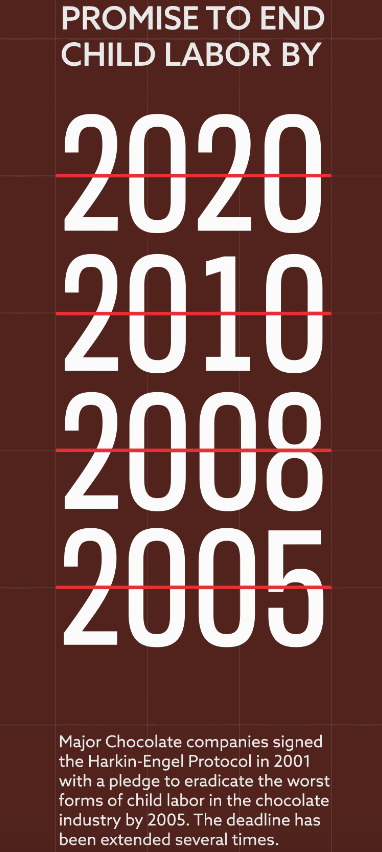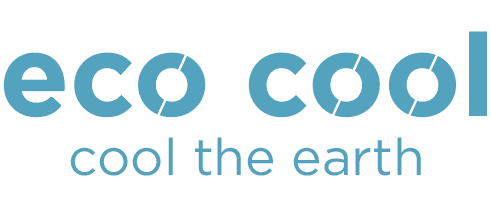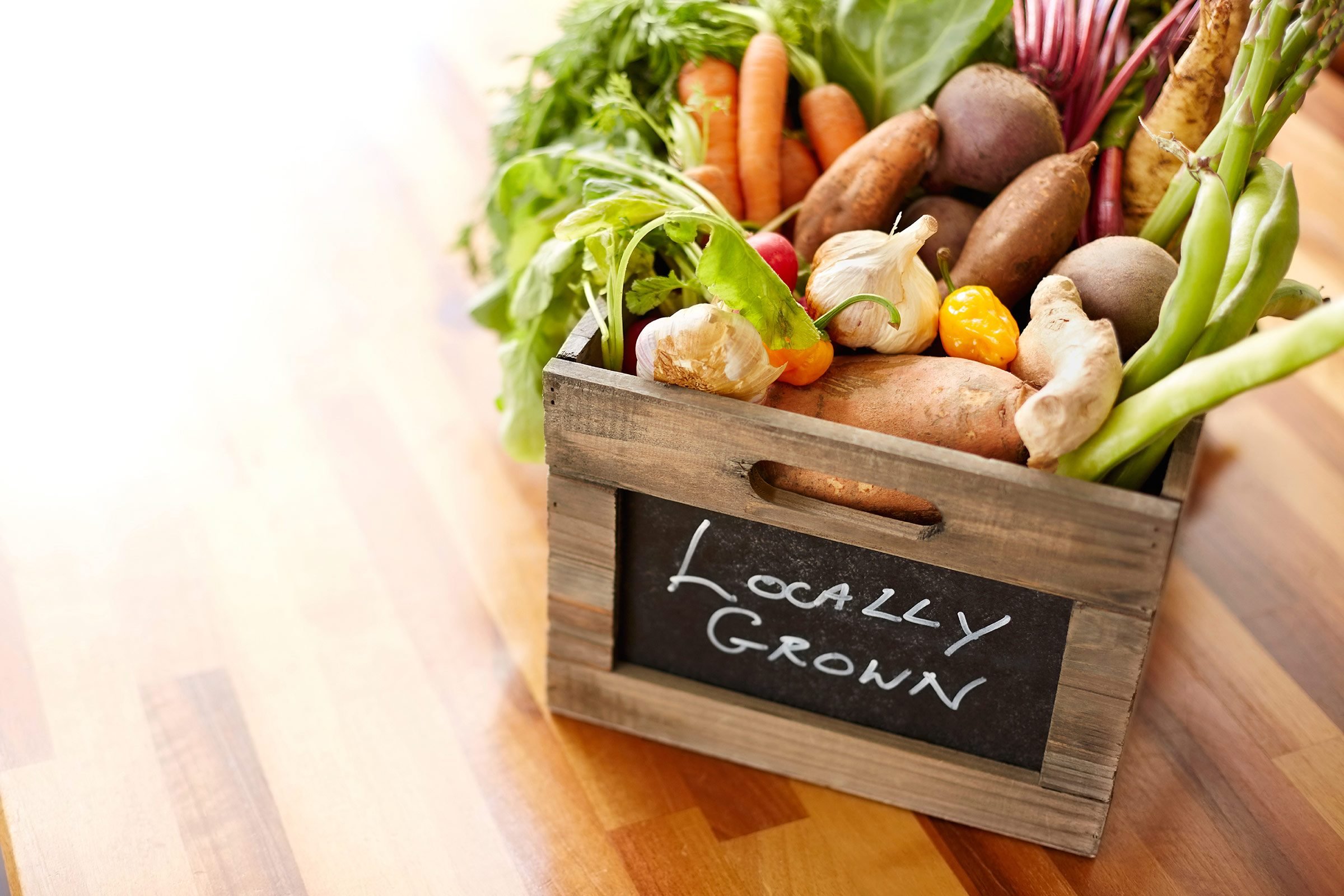


Sustainable Food is a wonderful way to help protect the planet and your health.
Shop Locally – Besides supporting the community, locally grown helps reduce fuels used in shipping.
Grow Your Own – Herbs in a pot in your home or vegetables planted in your yard help reduce fuels used in transportation, packaging and pesticides.
Organic – Buying organic supports organic farmers who work to eliminate the toxins from pesticides and fertilizers that enter our air, soil, water and food and can cause harm to our health and the health of the planet. These farmers also conserve biodiversity and ecosystems through this sustainable practice. Organic foods do not contain GMOs.
Minimally Processed – More natural foods are not only better for your health, but also help reduce the resources needed and resulting pollution during processing.
Plant Based – Raising livestock has an immense negative impact on the environment. Eating less meat, and more fruits and vegetables, will reduce the burden that livestock has on the planet.
Packaging– Buy in bulk and avoid plastic packaging where possible. Look for products in paper cartons, glass, or metal over plastic. Refuse the plastic straws and cutlery; carry your own pair of reusable cutlery with you. Don’t forget the canvas shopping bags and mesh produce bags so that you do not put groceries in plastic.
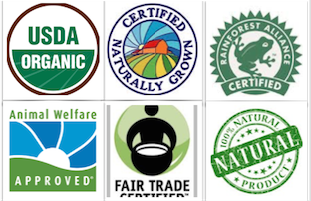
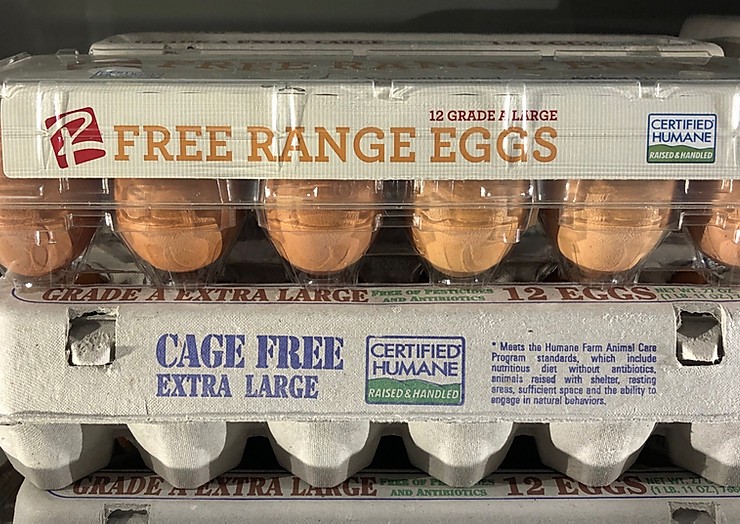
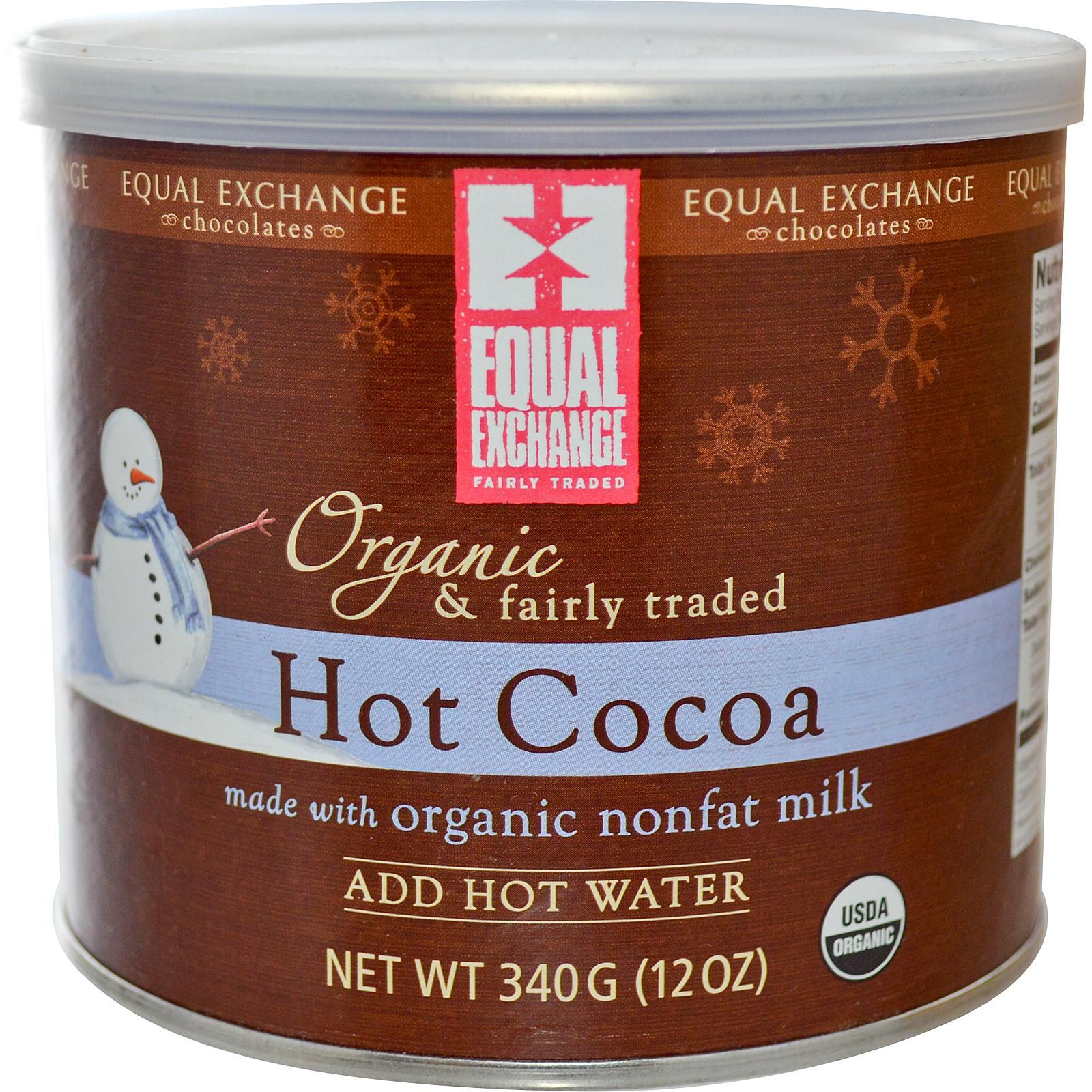
CERTIFICATIONS
Look for any of the following certifications that protect food, farming, animals and workers.
Food Justice Certification – bring justice to farmers
Fairtrade – promotes workers’ fair and living wages
Fair For Life – promotes ethical fair wage
Responsibly Grown Farmworker Assured – assures fair working conditions and food safety
Equal Exchange – fair trade coffee, tea & chocolate
Small Producer Symbol (SSP) -supports small farmers
World Trade Organization (WTO) – supports fair trade, organic agriculture, less waste, and empowering women
USDA Organic – prohibits synthetic fertilizers and encourages healthy soil practices
Demeter Biodynamic – supports biodynamic farms
Rainforest Alliance – reduces agriculture related to deforestation
Monterey Bay Aquarium Seafood Watch – promotes sustainable seafood practices
Soil Carbon Initiative (SCI) – reduces carbon in the air
Animal Welfare Certified – assures animals have healthy diets, outdoor access and enriched environments
Animal Welfare Approved – assures animals are raised outdoors and with certain requirements
Certified Grassfed – diets are 100% grass and forage for animals used for food products, animals raised outdoors
Certified Humane – assures humane treatment of animals
Regenerative Organic Certification (ROC) – requires worker welfare certification to promote fair and living wages, no forced child labor, and fair payments to farmers
The DARK SIDE of Chocolate
Environmental justice goes hand in hand with social, economic, and political justice. Society must work to correct all of these injustices.
While major chocolate companies make $140 billion a year, children are used in the cocoa bean production process making less than $2 a day. Avoid purchasing Hershey, Mars, Fowler, Nestle and Godiva and look for chocolate labels that have the Fair Trade Certification.

